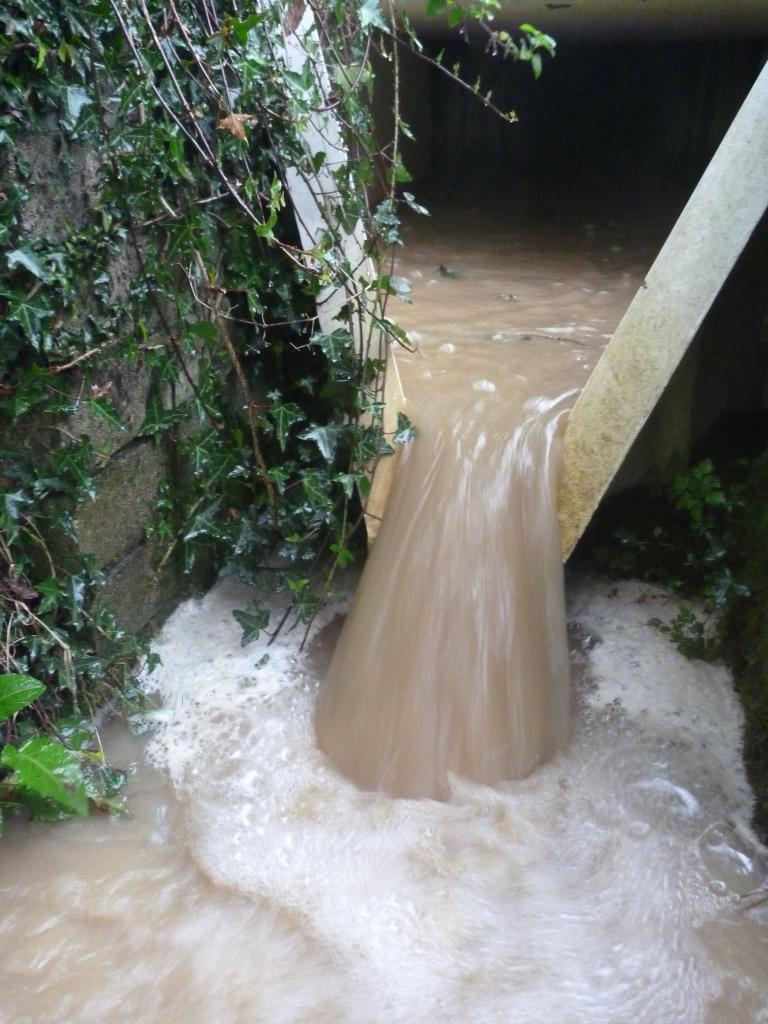The big picture: using wildflower strips for pest control
Extreme winter rainfall—set to become more frequent with climate change—is overwhelming the ability of farmland to regulate pollution, putting water quality and aquatic ecosystems at growing risk.
Scientists in the Resilient Farming Futures science programme working on Rothamsted’s North Wyke Farm Platform in Devon, part of the UK’s National Bioscience Research Infrastructure, have found that even well-managed grazing and arable systems are struggling to withstand modern winter wet weather extremes, leading to dramatically increased sediment loss from fields into rivers.
Using over a decade of high-resolution (15-minute) environmental data collected at North Wyke (Britain’s most monitored farm), researchers assessed how rainfall during five recent winters—including three of the wettest on record—affected soil erosion and sediment loss; a key indicator of water quality regulation. They compared this against a baseline of “modern background” sediment loss rates based on pre-World War II levels identified using dated lake cores collected from across the UK.
We urgently need to rethink how we manage agricultural land in the UK if we want to protect essential ecosystem services
The findings are stark. In pastures that had undergone routine ploughing and reseeding just before winter, sediment loss surged to as much as 2.4 times the expected modern background level. But in arable fields growing winter wheat and spring oats—losses were up to 21.7 times higher than the modern background rates.
These losses translate into significant environmental costs, with damage estimates ranging from £163 to £507 per hectare for permanent pasture and up to a staggering £2,812 per hectare for arable systems over the five winters studied.

“These results highlight the fragility of even our best-managed agricultural systems in the face of increasingly extreme winter wet weather,” said Professor Adie Collins, lead author of the study, adding that the findings raise serious questions about the long-term sustainability of current farming practices in a changing climate.
Elevated soil erosion not only depletes farm productivity but also chokes rivers and reservoirs with sediment, damaging habitats, worsening flooding, and increasing water treatment costs. As climate patterns shift, experts warn that a failure to adapt land management practices could see these impacts intensify and become more pervasive.
Professor Collins says these findings should serve as a wake-up call for policymakers, land managers, and the public alike. “We urgently need to rethink how we manage agricultural land in the UK if we want to protect the essential ecosystem services that farmland provides,” he added.

Science Director

Research Scientist

Hydrologist
Rothamsted Research is the longest-running agricultural research institute in the world. We work from gene to field with a proud history of ground-breaking
discoveries in areas as diverse as crop management, statistical interpretation and soil health. Our founders, in 1843, were the pioneers of modern
agriculture, and we are known for our imaginative science and our collaborative approach to developing innovative farm practice.
Through independent research, we make significant contributions to improving agri-food systems in the UK and internationally, with
economic impact estimated to exceed £3 bn in annual contribution to the UK economy. Our strength lies in our systems approach, which combines strategic research,
interdisciplinary teams and multiple partnerships.
Rothamsted is home to three unique National Bioscience Research Infrastructures which are open to researchers from all over the world:
The Long-Term Experiments,
Rothamsted Insect Survey and the
North Wyke Farm Platform.
We are strategically funded by the Biotechnology and Biological Sciences Research Council (BBSRC), with additional support from other national and
international funding streams, and from industry. We are also supported by the Lawes Agricultural Trust (LAT).
The Biotechnology and Biological Sciences Research Council is part of UK Research and Innovation, a non-departmental public body funded by a grant-in-aid
from the UK government.
BBSRC invests to push back the frontiers of biology and deliver a healthy, prosperous and sustainable future. Through our investments, we build and support a vibrant,
dynamic and inclusive community which delivers ground-breaking discoveries and develops bio-based solutions that contribute to tackling global challenges,
such as sustainable food production, climate change, and healthy ageing.
As part of UK Research and Innovation (UKRI), we not only play a pivotal role in fostering connections that enable the UK’s world-class research and innovation system
to flourish – we also have a responsibility to enable the creation of a research culture that is diverse, resilient, and engaged.
BBSRC proudly forges interdisciplinary collaborations where excellent bioscience has a fundamental role. We pioneer approaches that enhance the equality, diversity,
and inclusion of talent by investing in people, infrastructure, technologies, and partnerships on a global scale.
The Lawes Agricultural Trust, established in 1889 by Sir John Bennet Lawes, supports Rothamsted Research’s national and international agricultural science through the provision of land, facilities and funding. LAT, a charitable trust, owns the estates at Harpenden and Broom's Barn, including many of the buildings used by Rothamsted Research. LAT provides an annual research grant to the Director, accommodation for nearly 200 people, and support for fellowships for young scientists from developing countries. LAT also makes capital grants to help modernise facilities at Rothamsted, or invests in new buildings.